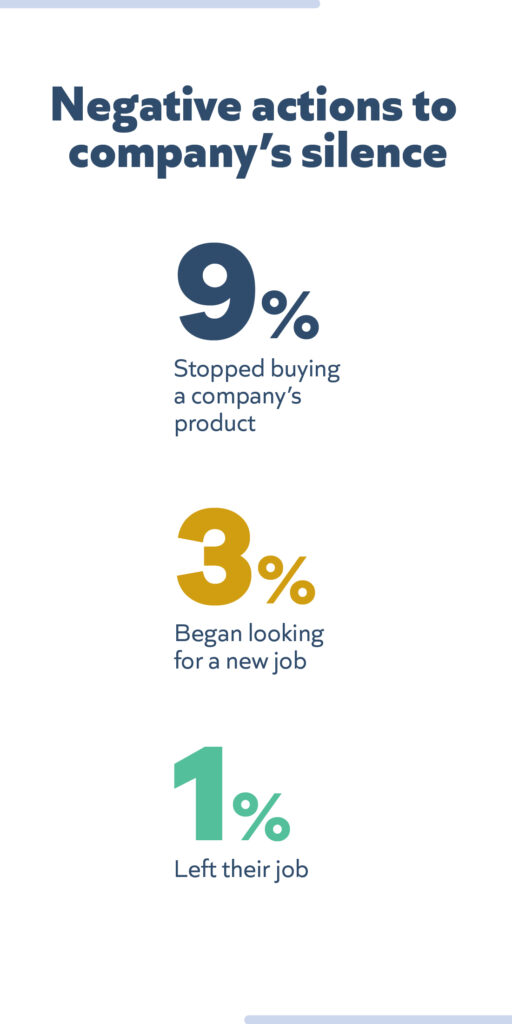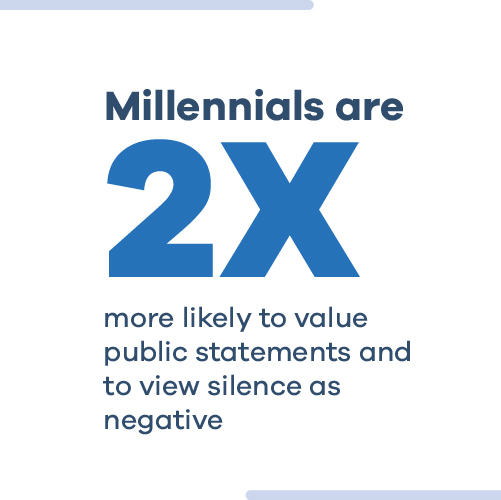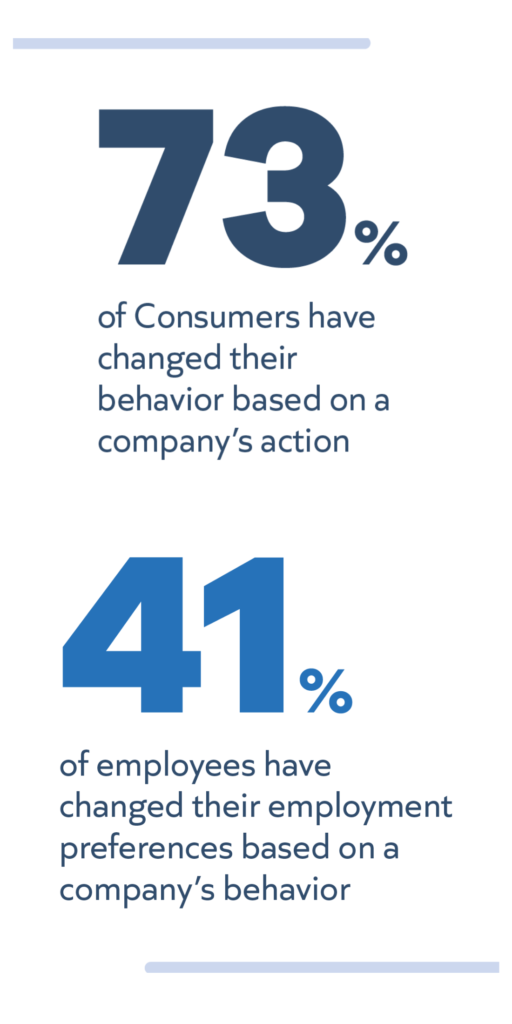Speak up or stay silent about sensitive social issues? New research informs business leaders’ calculus
What was quite recently unthinkable in business leadership is commonly on leaders’ desks today. They’re being asked, encouraged and occasionally forced into making statements about sensitive social issues.
What, if any, stance to take and whether to respond publicly, post internally or stay altogether silent about issues has become a sensitive calculus that requires careful consideration across stakeholders.
In goBeyondProfit’s February 2021 research report, we explored the implications of the mandate for executives to speak up, and employee and consumer reactions to companies’ generous behaviors, including backlash and forgiveness if executives are perceived as getting it wrong.
In a subsequent June poll of an equally representative sample of employed Georgians, goBeyondProfit explored the business impacts of choosing not to make a public statement.

This research showed that people notice when their employer and, to a lesser degree, favorite brands do not make a statement about the controversial issues they care most about. And respondents confirmed it’s important: only 16% of Georgians think it’s not at all important that businesses in their life make public statements on controversial issues. This echoed our February data which showed 91% of employed adults and 79% of senior business leaders expect executives to share their point of view about sensitive social issues.
But what actions will people take if a company chooses not to say anything?
The answers is: Consumers and employees, as a whole, are unlikely to take statistically significant action in response.
As consumers, roughly 16% rewarded a brand’s silence with their purchasing power and 12% recommended the brand to others. Only 9% stopped purchasing as a result and the numbers go down from here with only 4% complaining or trying to influence others to stop purchasing.
And as employees, the respondents were even less likely to take action – positive or negative – with only 3% claiming they starting looking for another job and 1% who left their employer.
People assume a company’s public silence is a reaction to the risks.
When asked to consider a company’s silence, Georgians’ assumptions consider business risk and role, and leadership attitudes. A bit more than half assume lack of a statement is a company’s choice based on the risks of doing so, a quarter assume businesses don’t feel it’s their place to speak out. And of particular note regarding values: 17% assume leaders don’t see a problem with the way things are.

Young people are the most important age group for leaders’ consideration.
They are twice as likely as older demographics to say silence is negative and to say it’s very important to make a statement. Younger people doubled their 35+ counterparts in feeling statements are important (86% vs. 56%).
Young people (18-35) are most likely to notice which companies do not make public statements about their most important causes, which include the full range of recent hot-button issues.
This cohort is also significantly more likely to act on their negative feelings toward brands who stayed silent.
Data points to opportunity, not obligation

Leaders don’t have to feel like a victim of the news cycle. And they shouldn’t expect measurable cost or revenue implications if they don’t make a statement. Instead, key decision factors include stakeholder perceptions and relationship impacts.
By clearly signaling corporate values around customers’ and employees’ priorities, companies build loyalty and differentiation.
Current events present an opportunity for leaders to demonstrate values, deepen relationships and influence their brand or company reputation.
Our February research showed a remarkable 73% of employed Georgians admit they have changed their purchasing behavior and 41% have changed their employment preferences based on the way a company behaved.
Leaders and companies should ensure their stakeholders are clear on their values and certain opinions, prioritizing behaviors — personal interactions, policies and programs — as the most important factors.
Demonstrating values is mission critical. Choosing whether to make a public statement about sensitive issues, is a matter of choice.
